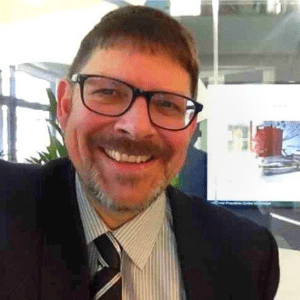Sunamp Ltd. - Experts & Thought Leaders
Latest Sunamp Ltd. news & announcements
Heat battery manufacturer Sunamp, Cory, one of the UK’s pioneering waste management companies, and Sheen Parkside, an arranger of innovative low-carbon infrastructure projects, have formed a consortium to decarbonize heating by moving waste heat along the River Thames in thermal batteries. The Thames Mobile Heat Consortium will take heat from along the river – initially from Cory’s Riverside energy from waste (EfW) plant, located on the banks of the Thames in Belvedere – store it in Sunamp thermal batteries, and transport it via barge to major heat consumers, such as district heat networks. British clean technology The consortium is in discussion with a number of potential heat consumers along the river and has recently completed a detailed feasibility study. The project will use world-pioneering phase change thermal storage, developed by Sunamp The project will use world-pioneering phase change thermal storage, developed by Sunamp and the University of Edinburgh, helping to reinforce British clean technology leadership and drive investment in UK supply chains. The batteries use a salt-based, non-toxic, long-duration phase change material (PCM), and will be housed in specially designed shipping containers making them easy to transport by barge. Cory’s waste transfer operation When transporting heat, the thermal batteries remain on the barge at all times. At the discharge location, a water pipe is run out along a jetty and draws heat from the batteries via an internal heat exchanger. Cory will oversee the marine logistics of the project; the company currently transports most of the waste it processes via a fleet of tugs and barges and has the longest continued lighterage operation on the Thames. This would be run as an independent logistics operation from Cory’s waste transfer operation. One potential consumer is the Pimlico District Heating Undertaking (PDHU), owned and operated by Westminster City Council, which is considering it as one of several options for decarbonization. The PDHU is the oldest district heating scheme in the UK, supplying over 3000 homes and 50 commercial and community buildings, and originally took waste heat from Battersea Power Station. Completion of planning and approvals Heat would be transported on two barges, each carrying up to 120 MWh in 40 batteries If the Thames Mobile Heat Consortium does supply the PDHU, it has the scope to provide c.50 GWh of heat per year, which is currently provided by large gas boilers. Heat would be transported on two barges, each carrying up to 120 MWh in 40 batteries, traveling 28km each way along the river. Heat supplied on this basis has been modeled to provide heat at 12 g CO2/kWh or lower, which is a substantial reduction compared to gas which is modeled at c.216 g CO2/kWh (each calculated according to the UK Treasury Green Book methodology). From the completion of planning and approvals, and the final commercial agreement, this could be operational in less than a year. Electricity grid upgrades The project has the added use of easing aid on imported fuel and bringing costs down for clients As district heating expands across London, and other large heat users seek to move away from gas, the project has the potential to provide lower carbon heat, rapidly and at scale. It is not dependent on electricity grid upgrades – which are sometimes required to support large heat pumps – and can supply legacy gas-boiler flow temperatures, which heat pumps can struggle to reach efficiently. The project has the added benefit of reducing reliance on imported fuel and bringing costs down for customers. As the heat does not come from an electrical source, it can also help to balance when demand is placed on the UK’s national grid, which will be a critical challenge as the UK turns to electricity to decarbonize heating. New era of sustainable energy distribution William Edrich, Global Head of C&I at Sunamp, said: "By harnessing the power of large-scale thermal batteries, we are not just transporting waste heat; we are delivering a global solution to the pressing challenge of our time – the decarbonization of heat. Together with our consortium partners, we are bringing forward a new era of sustainable energy distribution and demonstrating the application of our world-pioneering thermal storage technology to the industrial sphere and heat networks.” Chris Girdham, Development Director of Cory, said: “At Cory, we are proud to provide a vital public service that diverts non-recyclable waste from landfill. The EfW process produces huge amounts of heat, and rather than seeing this valuable resource go to waste we want to use it to benefit communities in the UK which are seeking to cut carbon emissions and keep energy bills down. By moving heat to where it’s most needed, we can help to reduce our reliance on fossil fuels and maintain the UK’s role as a clean energy innovator.” UK’s territorial carbon footprint David Carter, Co-Founder & CEO of Sheen Parkside, said: “Over a third of the UK’s territorial carbon footprint comes from burning gas and oil for heating. At the same time, the country wastes a huge of amount of high-grade industrial heat, simply because it’s in the wrong place." "Using thermal batteries we can move that heat efficiently. These mobile heat networks can be set up rapidly, flexibly and at scale.” Connect sources of heat The project’s application is not limited to London. As communities across the UK seek to reduce emissions from heating, the project can be scaled and replicated to connect sources of heat that would otherwise be wasted with the consumers and businesses who will benefit from it. Work on this project has been supported by Akin and Pinsent Masons (legal advisers), AECOM (technical advisers), Ener-Vate (commercial consultants), Fichtner (owner’s technical advisers at Riverside), Houlder (naval architects), and Mazars (modeling), as well as numerous other companies across the supply chain. Input has also been gratefully received from Triple Point.
UK thermal storage technology company SUNAMP has signed a partnership agreement with Faradise Energy (trading name of Pozbud Inwestycje Sp. z o.o.), a subsidiary of construction and engineering company COMPREMUM S.A, listed on the Warsaw Stock Exchange, in move that could curb gas use across Poland. The agreement will see Sunamp ramp up distribution of its energy-efficient thermal batteries in Central and Eastern Europe in line with the company’s international expansion strategy. The first order under the deal has been confirmed, and sales are expected to reach up to £10m in three years. The deal The deal was signed in Poznań by Sunamp CEO Andrew Bissell and Faradise CEO Andrzej Laskowski. Faradise Energy will distribute Sunamp’s Thermino range of heat batteries for hot water in the Polish market, focusing on heat pump and solar PV compatible models. The distribution agreement is a first step towards creating a manufacturing joint venture to produce thermal batteries using phase change materials in Poland under the Sunamp brand. Growing solar PV markets Poland is home to one of Europe’s fastest-growing solar PV markets Poland is home to one of Europe’s fastest-growing solar PV markets and is accelerating the adoption of heat pump technology in conjunction with solar PV and other renewables to speed up emission reduction and provide energy security. Sunamp designs and manufactures compact heat batteries based on its patented Plentigrade® high-performance thermal storage technology platform. The Thermino range can store energy from renewable sources to deliver hot water in thermal batteries that are up to four times smaller than equivalent hot water cylinders. Thermino hp heat batteries can support the full range of HVAC solutions involving heat pumps worldwide. Where available, excess solar PV energy can be diverted and stored into Thermino hpPV models. An exciting partnership Sunamp CEO Andrew Bissell said, “This is an exciting partnership that marks the beginning of Sunamp’s plans for significant growth in Central and Eastern Europe.” “With specialisms in the construction sector and ambitions to grow their share of the renewable energy market, Pozbud Inwestycje is an excellent fit for us.” “Against a backdrop of soaring energy costs, precarious gas supplies and the requirement to be more energy self-sufficient, the global market for more efficient thermal storage is growing fast as countries turn away from gas and coal towards renewable sources of energy.” Thermino hp Thermino hp enables heat pumps in homes that lack the space for a large hot water tank Bissell states, “Sunamp technology is at the forefront in leading the transformation of how we generate, store, and use heat and cooling thermal energy. Thermino hp enables heat pumps in homes that lack the space for a large hot water tank and also work with lower temperature heat pumps.” “We're excited to bring these innovations forward to the market in Poland with our new partners Compremum and Faradise Energy to help rapidly reduce reliance on fossil fuels and accelerate the switch to renewable energy and electrification of heat.” A fruitful cooperation Faradise Energy CEO Andrzej Laskowski, “The signing of the trade agreement with Sunamp is an event of great importance to us.” “Having entered the field of electricity storage for industry, we now have thermal energy storage technologies for households. “We believe that this will be an extremely fruitful cooperation which, on the one hand, will support Polish homes in terms of thermal energy supply and, on the other hand, will be the basis for the joint development of both entities in large-scale projects.”



